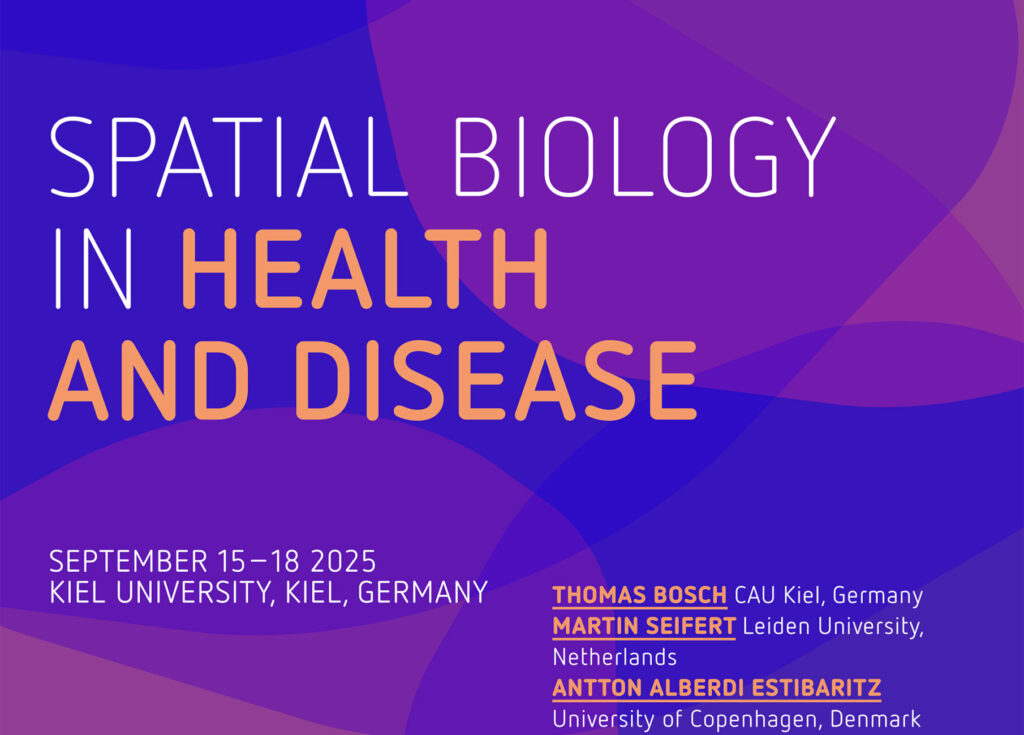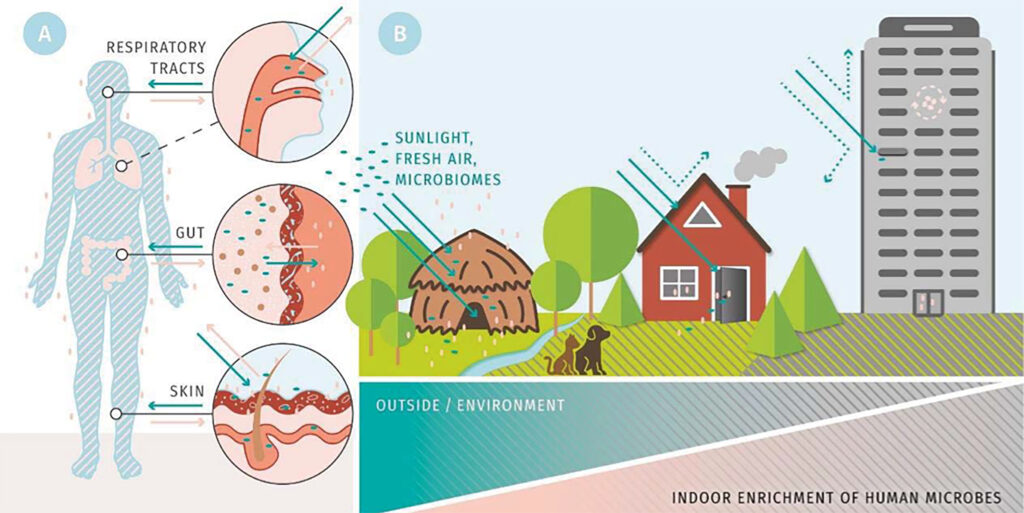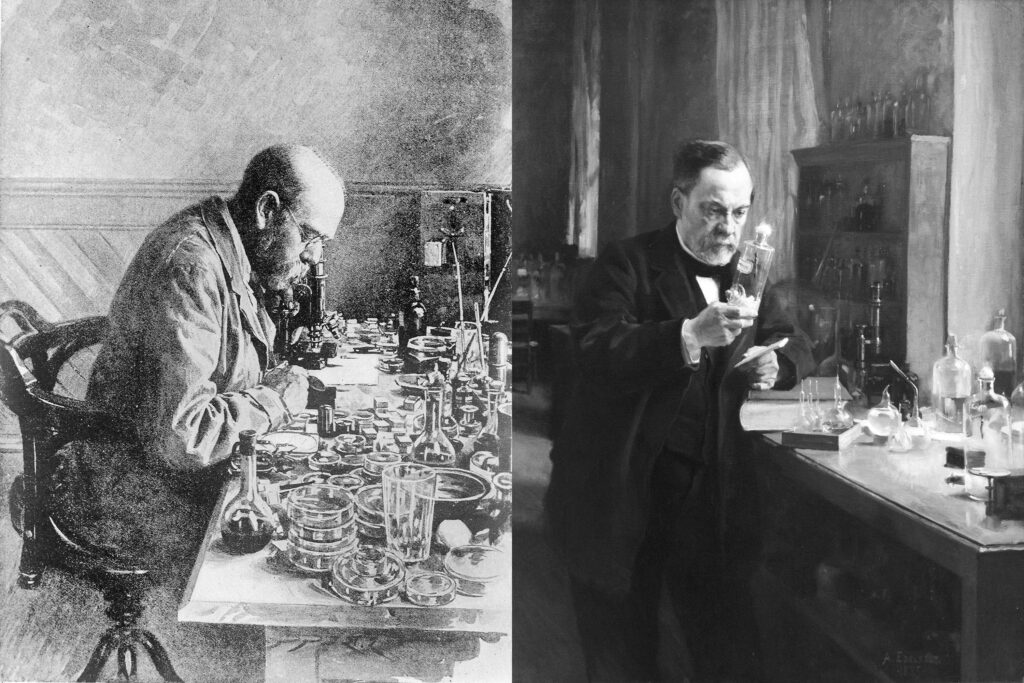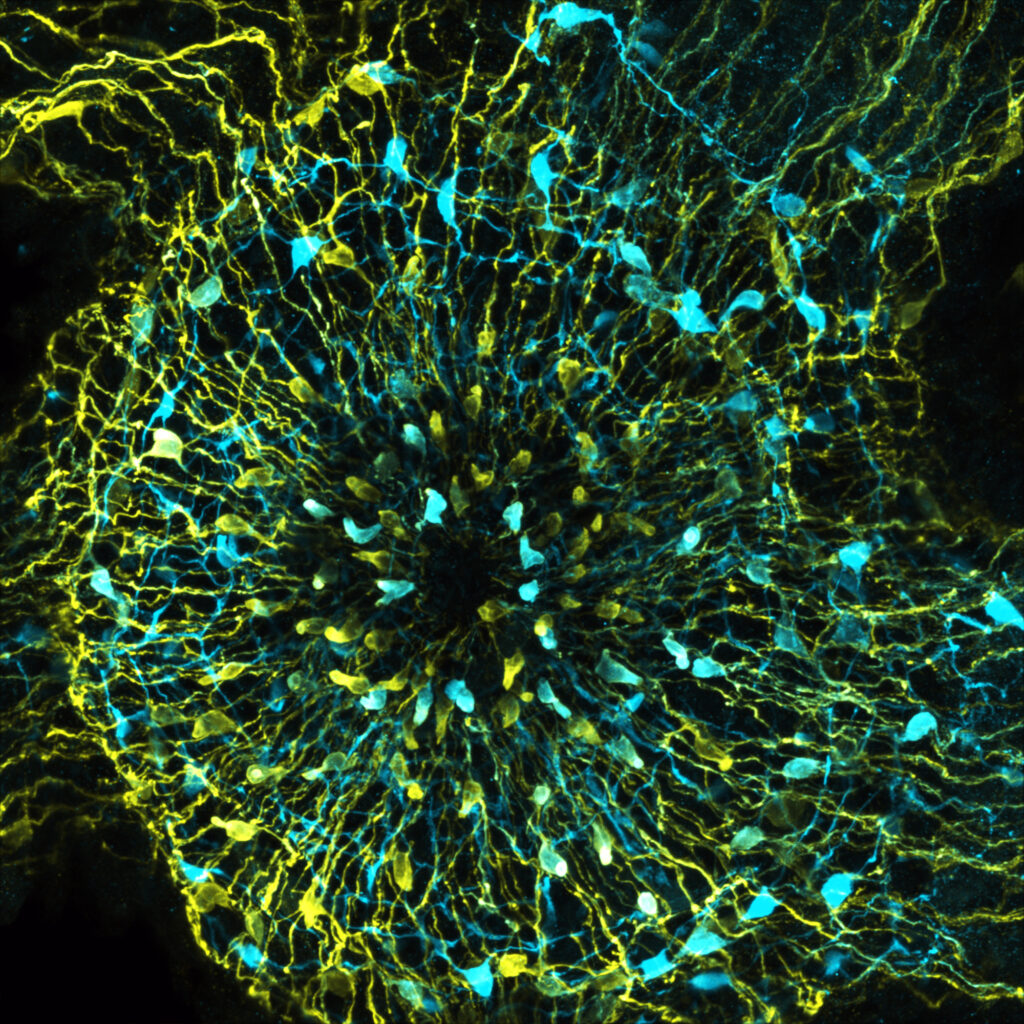First international KLS Summer School for early career researchers in the life sciences
Summer School “Spatial Biology in Health and Disease“: Kiel Life Science offers high-calibre scientific training for early career researchers from the Baltic Sea region
The KLS Summer School “Spatial Biology in Health and Disease“ has been running since Monday, 15 September, and is being held for the first time in 2025 by the Kiel Life Science (KLS) priority research area at Kiel University. KLS is thus offering the roughly 30 participants intensive scientific training in a current and highly relevant field of life sciences. The four-day event brings together leading experts and early career researchers to discuss the latest developments in spatial biology and to promote cooperation and innovation, especially among research locations in the Baltic Sea region.
Spatial biology is a current field of research, including novel technological methods, that maps and analyses biological molecules, cells and tissues in their natural three-dimensional context. It aims at understanding how spatial position influences the functions and interactions of these structures, thereby enabling a novel and holistic view of biological processes – for example, the interaction of cells in a host organism with symbiotic microorganisms within the microbiome.
First KLS Summer School strengthens young talent in life sciences
In addition to plenary lectures by renowned researchers, the participating early career researchers from eight national and international research locations, including the universities of Copenhagen and Helsinki, will be offered practical courses that provide them with targeted training in various innovative methods of spatial biology. The lectures and courses are divided into three subject areas: “Microbiomes at the micron level”, “Data analysis and integration”, and “Transfer to economic applications”. The event, which runs until Thursday, is organised by KLS spokesperson Professor Thomas Bosch, Professor Manuel Liebeke and Professor Andreas Tholey, spokespersons of the Kiel Spatial Biology Centre (KSBC), as well as Professor Mathieu Groussin and Professor Mathilde Poyet, spokespersons for the Kiel Microbiome Centre (KMC). Dr Joana Bernardes and Prof. Florian Tran, both from the Institute of Clinical Molecular Biology (IKMB) at Kiel University and the University Hospital Schleswig-Holstein, Kiel Campus (UKSH), also play a key role in the summer school and build bridges to clinical application, particularly in the research and treatment of chronic inflammatory bowel diseases (IBD).
“This year, we will focus on two key areas in Kiel: spatial transcriptomics and microbiome research. With the KSBC and the KMC, we strongly represent these topics in Kiel and can serve as a collaborative hub for deciphering complex biological processes and their involvement in, for example, microbiome-associated disease mechanisms using various innovative methods. We want to incorporate this expertise into the training of early career researchers and, at the same time, give the next generation of scientists access to the valuable international network of our collaboration partners,” emphasises Manuel Liebeke, Professor of Metabolomics at Kiel University.
Baltic Alliances – Networking life sciences in the Baltic Sea region
With its first summer school in Kiel, KLS also aims to promote networking among life science research locations in the Baltic Sea region. On the one hand, the programme is aimed at early career researchers from regional and international partner institutions, such as the Universities of Copenhagen and Greifswald. On the other hand, the invited experts, such as Professor Antton Alberdi Estibaritz from the Centre for Evolutionary Hologenomics at the University of Copenhagen, also come from various locations in the Baltic Sea region. The promotion of talent in this network is an important building block for bringing a Baltic Alliance of life sciences research to life and strengthening this cooperation for the future through the collaborative training of future generations of researchers.
Life science career paths outside academia
An additional aspect of the summer school is its focus on career paths for life scientists outside academia. In addition to traditional scientific careers at universities and research institutions, biotechnology companies are becoming increasingly attractive. Dr Martin Seifert, Senior Science and Technology Advisor at 10xGenomics, will be present at the KLS Summer School as an expert with his plenary lecture “New insights into biology through single-cell and spatial analyses”. The US biotechnology company develops integrated platforms, for example in the form of hardware and software for single-cell genomics and omics analyses, among other things, for the investigation of biological systems.
“I wanted to see how the world looks like outside the academic system – out of curiosity. When I shifted to the commercial side, I thought my scientific career would be over, but it wasn’t. As a company, we could be still involved in many research projects for example as technology partners and that allowed me continue with science”, Seifert describes his own career development and transition to the industry. Dr Axel Koch from Kiel University’s Transfer Department also provides important insights, speaking about intellectual property protection and patents in the life sciences sector.
“We are delighted to offer the KLS Summer School with a focus on spatial biology for the first time this year. The balanced mix of lectures, practical laboratory exercises and extensive networking opportunities provides real added value for young scientists and helps participants to pursue successful careers in science and industry. In the future, we would like to repeat the summer school annually with changing thematic focuses, thus creating a regular platform for cooperation and innovation together with our partners in the Baltic Sea region,” summarises KLS spokesperson Bosch.
Images are available for download:
www.uni-kiel.de/de/pressemitteilungen/2025/148-kls-summerschool-25-group.jpg
Caption: With this four-day event, KLS is offering around 30 participants an intensive scientific training in the highly relevant field of spatial biology.
© Christian Urban, Kiel University
www.uni-kiel.de/de/pressemitteilungen/2025/148-kls-summerschool-25-alberdi.jpg
Caption: At the KLS Summer School, Professor Antton Alberdi Estibaritz from the Centre for Evolutionary Hologenomics at the University of Copenhagen, presented his talk “3D’omics – a novel approach to understand life”.
© Christian Urban, Kiel University
www.uni-kiel.de/de/pressemitteilungen/2025/148-kls-summerschool-25-tb-ms.jpg
Caption: As a representative of the biotechnology company 10xGenomics, Dr Martin Seifert (right, pictured here with KLS spokesperson Prof. Thomas Bosch) outlined career prospects in industry for early career researchers.
© Christian Urban, Kiel University
Contact:
Prof. Thomas Bosch
Spokesperson priority research area
Kiel Life Science (KLS), Kiel University
Phone: +49 431-880-4170
Email: tbosch@zoologie.uni-kiel.de
More information:
KLS Summer School „Spatial Biology in Health and Disease“,
Priority research area Kiel Life Science (KLS), Kiel University:
www.uni-kiel.de/en/research/priority-research-areas/details/news/kls-summer-school
Priority research area Kiel Life Science (KLS), Kiel University:
www.uni-kiel.de/en/research/priority-research-areas/kiel-life-science
Kiel Microbiome Center (KMC), Kiel University:
www.uni-kiel.de/en/centres/kmc



